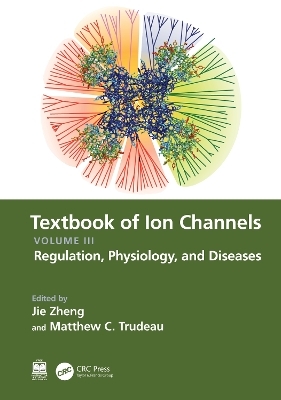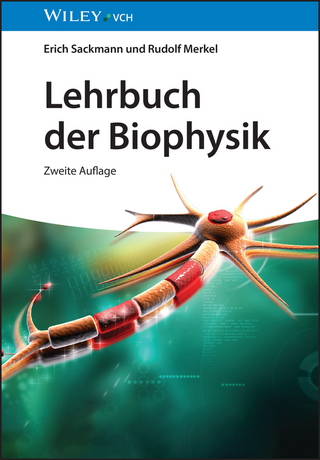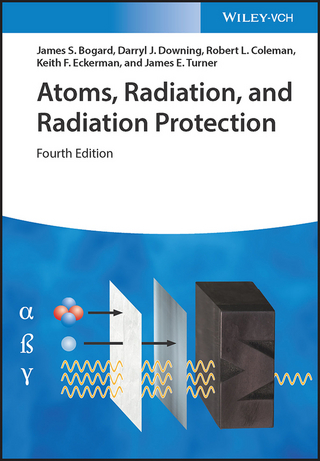
Textbook of Ion Channels Volume III
CRC Press (Verlag)
978-0-367-53819-4 (ISBN)
The Textbook of Ion Channels is a set of three volumes that provides a wide-ranging reference source on ion channels for students, instructors and researchers. Ion channels are mem- brane proteins that control the electrical properties of neurons and cardiac cells; medi- ate the detection and response to sensory stimuli like light, sound, odor, and taste; and regulate the response to physical stimuli like temperature and pressure. In non-excitable tissues, ion channels are instrumental for the regulation of basic salt balance that is critical for homeostasis. Ion channels are located at the surface membrane of cells, giving them the unique ability to communicate with the environment, as well as the membrane of intracellular organelles, allowing them to regulate internal homeostasis. Ion channels are fundamentally important for human health and diseases, and are important targets for pharmaceuticals in mental illness, heart disease, anesthesia, pain and other clinical appli- cations. The modern methods used in their study are powerful and diverse, ranging from single ion-channel measurement techniques to models of ion channel diseases in animals, and human clinical trials for ion channel drugs.
Volume III includes coverage of key ion channel regulators and their mechanisms, the role of ion channels working in concert in selected physiological systems, and examples of ion channel mutations and dysfunction in a selection of diseases. Chapters on ion channel regulation include splice variants, calcium–calmodulin regulation, regulation by G pro- teins, and lipids. A selection of ion channels in physiological systems includes ion chan- nels of the heart, ion channels in immune cells and their role in pancreatic beta cells and regulation of insulin secretion, and the role of channels in sperm and eggs. While disease mechanisms are integrated into the chapters of Volume II, Volume III offers special consid- eration of ion channels in epilepsy, cystic fibrosis and pain syndromes.
All three volumes give the reader an introduction to fundamental concepts needed to understand the mechanism of ion channels, a guide to the technical aspects of ion channel research, offer a modern guide to the properties of major ion channel families, and includecoverage of key examples of regulatory, physiological, and disease roles for ion channels.
Jie Zheng, PhD, is a professor at the University of California Davis School of Medicine, where he has served as a faculty member in the Department of Physiology and Membrane Biology since 2004. Dr. Zheng earned a bachelor’s degree in physiology and biophysics (1988) and a master’s degree in biophysics (1991) at Peking University. He earned a PhD in physiology (1998) at Yale University, where he studied with Dr. Fredrick J. Sigworth on patch-clamp recording, single-channel analysis, and voltage-dependent activation mechanisms. He received his postdoctoral training at the Howard Hughes Medical Institute (HHMI) and the University of Washington during 1999–2003, working with Dr. William N. Zagotta on the cyclic nucleotide-gated channels activation mechanism and novel fluorescence techniques for ion channel research. Currently, Dr. Zheng’s research focuses on temperature-sensitive TRP channels. Matthew C. Trudeau, PhD, is a professor in the Department of Physiology at the University of Maryland School of Medicine in Baltimore, Maryland. He earned a bachelor’s degree in biochemistry and molecular biology in 1992 and a PhD in physiology in 1998 while working with Gail Robertson, PhD, at the University of Wisconsin-Madison. His thesis work was on the properties of voltage-gated potassium channels in the human ether-aì-go-go related gene (hERG) family and the role of these channels in heart disease. Dr. Trudeau was a postdoctoral fellow with William Zagotta, PhD, at the University of Washington and the Howard Hughes Medical Institute (HHMI) in Seattle from 1998 to 2004, where he focused on the molecular physiology of cyclic nucleotide-gated ion channels, the mechanism of their modulation by calcium-calmodulin, and their role in an inherited form of vision loss. Currently, Dr. Trudeau’s work focuses on hERG potassium channels, their biophysical mechanisms, and their role in cardiac physiology and cardiac arrhythmias.
1. Alternative Splicing 2. Calmodulin Regulation of Ion Channels 3. Mechanism of G-protein Regulation of Ion Channels 4. Regulation of Ion Channels by Membrane Lipids 5. Ion Channels of the Heart 6. Ion Channels in Sperm and Eggs 7. Ion Channels in Immune Cells 8. Ion Channels in Epilepsy 9. Ion Channels in Pain 10. Cystic Fibrosis and the CFTR Anion Channels 11. CLC-Related Proteins in Diseases 12. KATP Channels and the Regulation of Insulin Secretion
| Erscheinungsdatum | 16.05.2023 |
|---|---|
| Zusatzinfo | 5 Tables, black and white; 39 Line drawings, color; 6 Line drawings, black and white; 21 Halftones, color; 2 Halftones, black and white; 60 Illustrations, color; 8 Illustrations, black and white |
| Verlagsort | London |
| Sprache | englisch |
| Maße | 178 x 254 mm |
| Gewicht | 700 g |
| Themenwelt | Naturwissenschaften ► Physik / Astronomie ► Angewandte Physik |
| Technik ► Umwelttechnik / Biotechnologie | |
| ISBN-10 | 0-367-53819-9 / 0367538199 |
| ISBN-13 | 978-0-367-53819-4 / 9780367538194 |
| Zustand | Neuware |
| Informationen gemäß Produktsicherheitsverordnung (GPSR) | |
| Haben Sie eine Frage zum Produkt? |
aus dem Bereich


